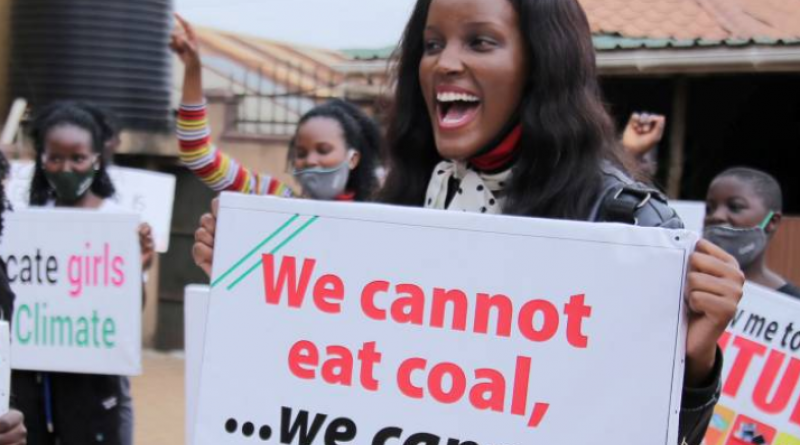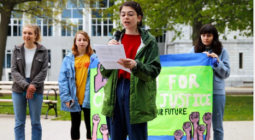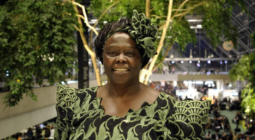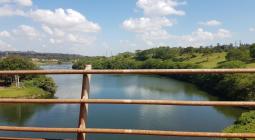Youth activists urge bigger say in decision making for climate-hit Africans.

The young environmentalists are looking for a seat at the table when decisions are being made about their futures as climate impacts worsen across the continent
LONDON - Young African environmental activists said Saturday it is crucial those most impacted by climate change have a bigger say in decision-making to find solutions, including at upcoming COP26 U.N. climate talks set for November in Glasgow.
In an online discussion joined by Swedish climate activist Greta Thunberg, Nigerian environmentalist Olumide Idowu said African youth could "no longer afford to be spectators of our future".
"Most of these negotiators negotiate on behalf of us, without us ... we should be looking at how we can be a part of these negotiations," Idowu said.
From stronger heatwaves and storms to droughts and flooding, climate impacts are hitting Africa increasingly hard, according to the World Meteorological Organization (WMO).
Droughts have killed crops, worsening existing food insecurity across the continent, while excessive rains and flooding have contributed to unprecedented plagues of locusts and the spread of diseases.
Ugandan climate activist Vanessa Nakate said despite the growing threats, "we are not seeing the action we hope to see. We're not seeing leaders do what we are asking them to do".
Little of the limited money available to combat those threats is making its way to frontline communities, as funders have often tended to focus instead on larger, well-established organisations.
When Amazon founder Jeff Bezos last year donated a first round of promised billions to fight climate change, for example, most of the money went to big environmental groups rather than affected countries and communities.
And with key interim U.N. climate negotiations, ahead of the November talks, now set to happen online, low-income countries, including those in Africa, could be disadvantaged by poor internet access.
The young environmentalists said African grassroots activists can be particularly effective at tailoring climate messages to local people in order to lower climate risks and build support for climate action.
That includes engaging communities on social media or translating climate science into useable information on risks to food production and security, they said.
But while young Africans had found local solutions to problems, educated their peers on climate change and worked to build more resilient communities, these solutions were not being heard at higher levels, they said.
Thunberg urged world leaders to give greater prominence to on-the-ground expertise as they try to accelerate action on climate change and cut risks.
"I cannot stress how important it is that we listen to the African voices and tell the African stories," she said.
"It's about time we pass over the mic."
8 May 2021
Reuters






